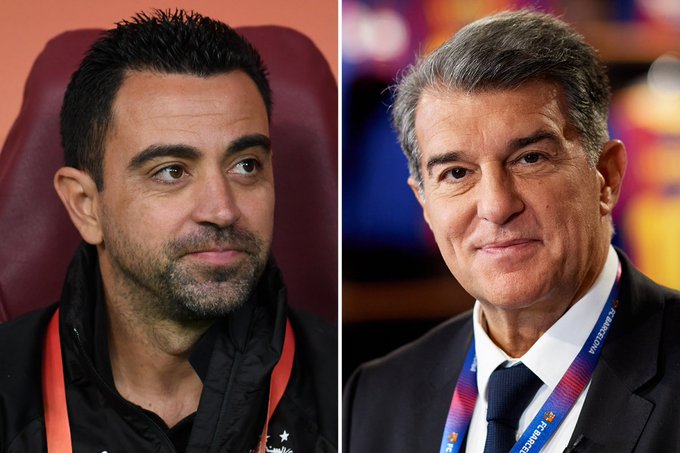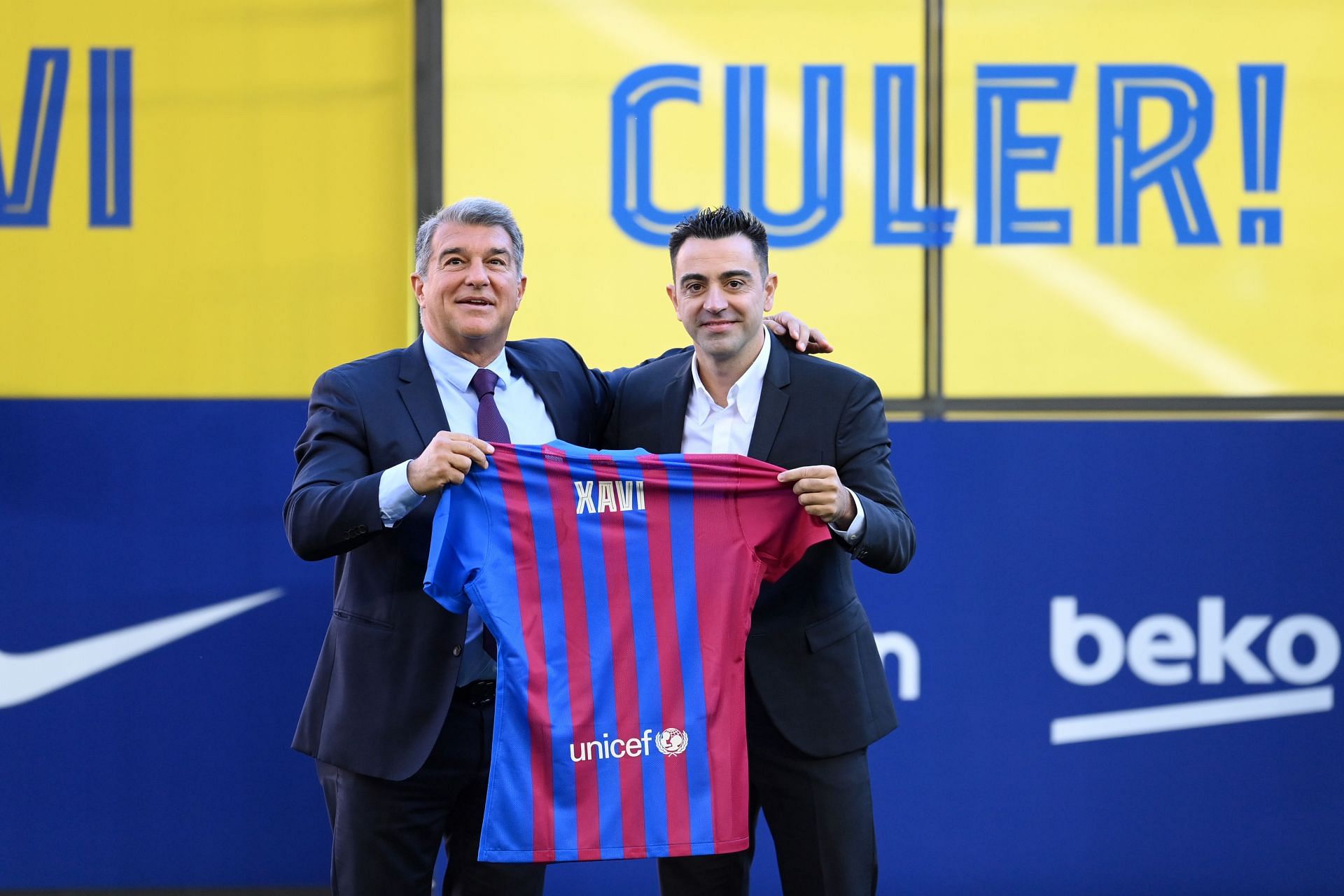
Xavi, Guardiola, Laporta: FC Barcelona return to the old order
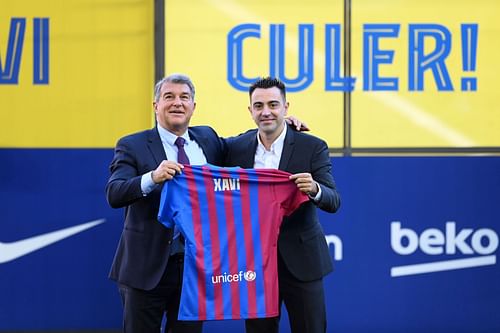
With Xavi Hernandez at the helm, Barcelona look to mend the normalisation of mediocrity engulfing the club since Luis Enrique's departure in 2017. A holiday-like atmosphere has pervaded the club for some time now, but things are about to change.
During his time at the club as a player, Xavi was known for his exceptional technical ability on the ball. He had the vision to play passes that looked impossible to pull off. Few, though, are aware that what made him so great was a strong feeling of professionalism as well as his love for the Barcelona shirt. This is a common trait that Xavi shares with the rest of the Barcelona old guard.
Can professional Xavi steady Barcelona?
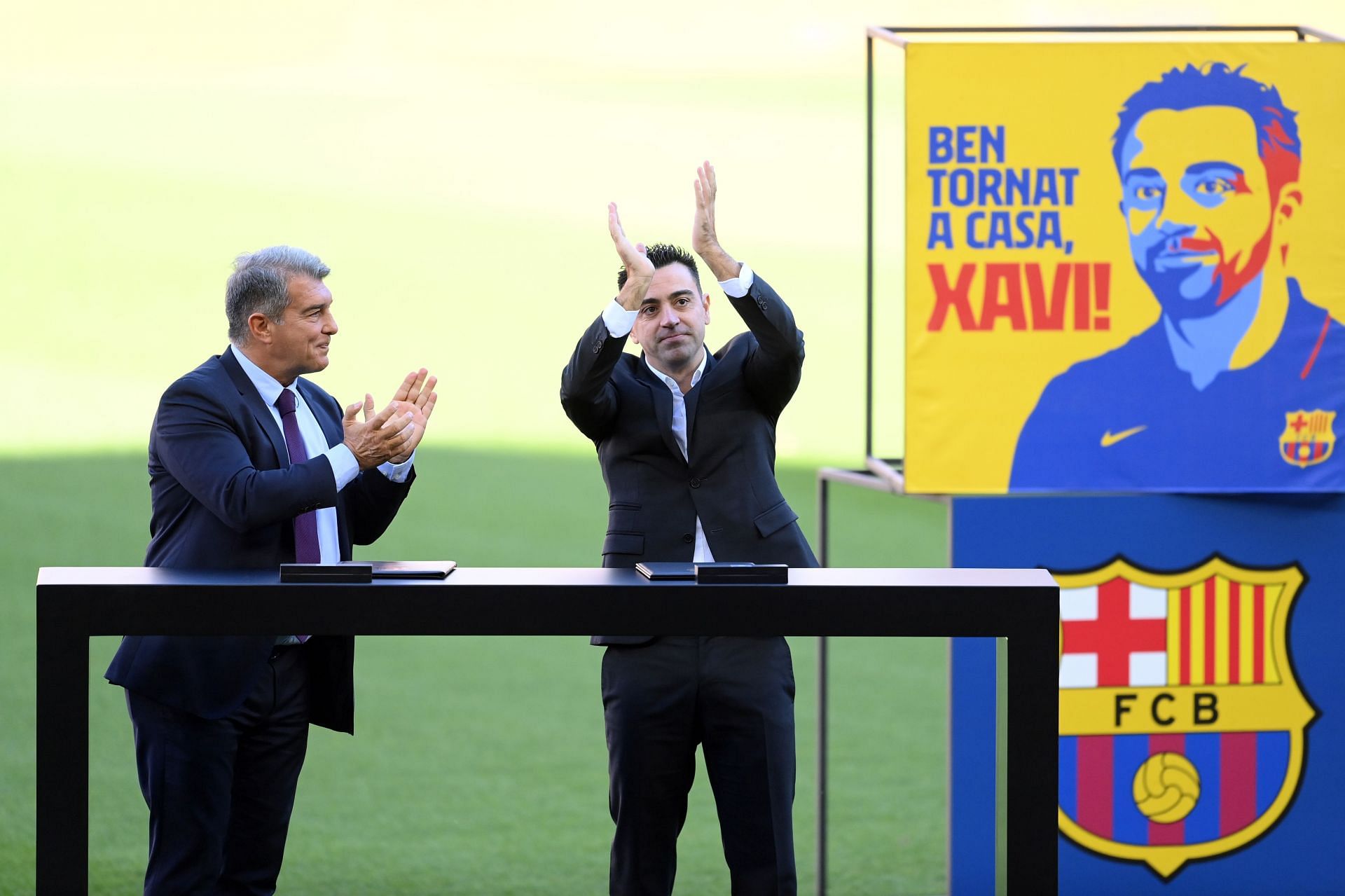
Carles Puyol, Andres Iniesta, Victor Valdes, Rafael Marquez and others belong to the old-school of pre-Instagram players. For them, work was worship and the club Barcelona meant everything. It is unsurprising, therefore that Xavi has attempted to bring back some of that drive and seriousness back to the dressing room. That was something he displayed in abundance as a player.
In that respect, Xavi has chosen his time wisely. Xavi will have more control over the team and the club’s policies than other Barcelona managers have had recently. He comes to the club at a time when he will have the maximum opportunity to have things his way. He knows that Joan Laporta has taken a hit to his credibility by dallying in his sacking of Ronald Koeman, a move that may yet backfire.
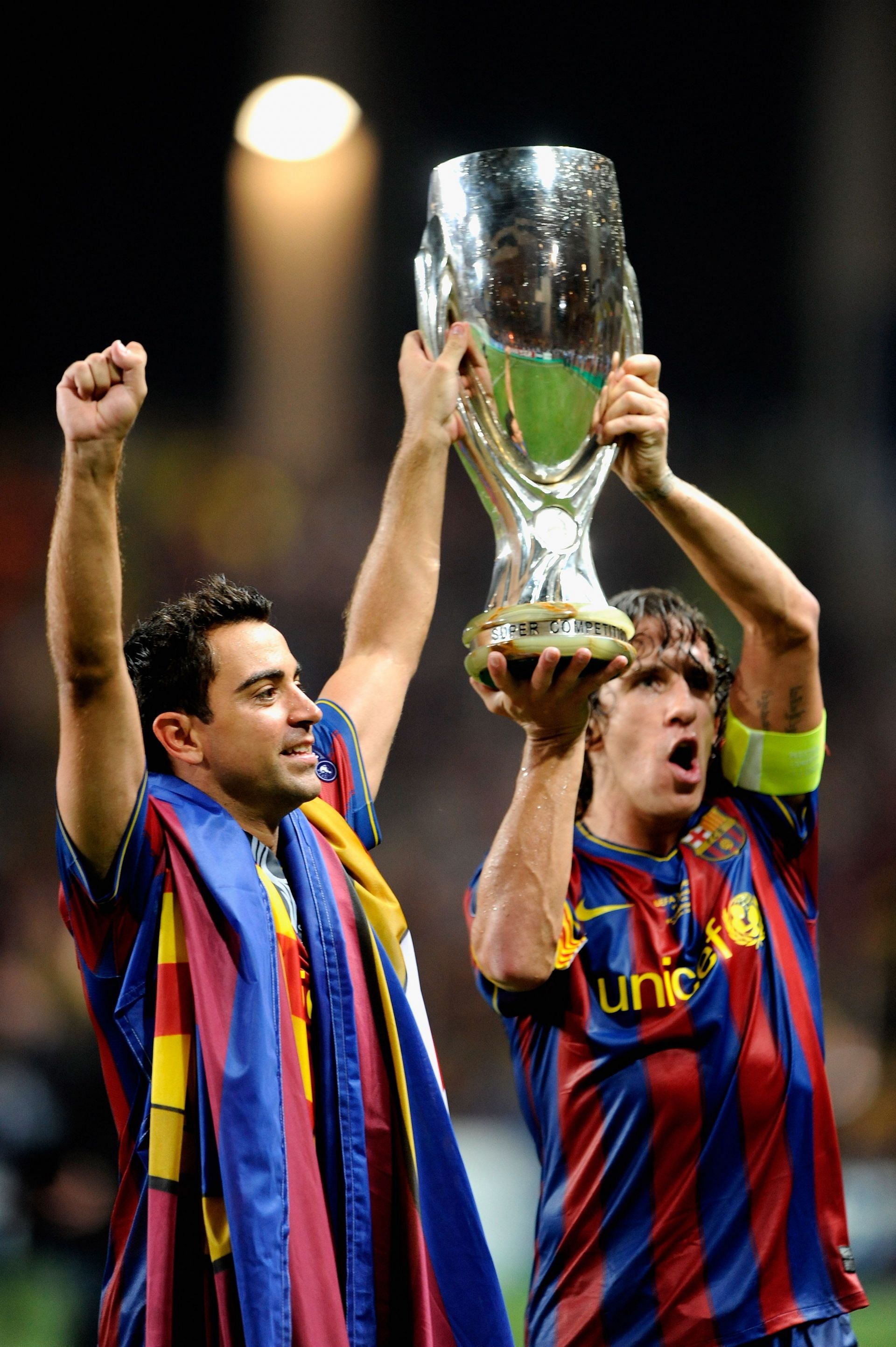
Xavi knows that Laporta does not have the necessary funds to rope in talent from outside. He also knows he is short of quality options, and needs Xavi. For now, the former midfielder has Laporta in his grip, and should enjoy a certain amount of freedom as a corollary.
This is quite fortunate for the club, for unlike other managers, Xavi knows FC Barcelona only too well. He knows that the fans want nothing but victory. But victory must also come by playing a brand of beautiful football that was Barcelona’s gift to the world.
Yes, the Dutch invented 'Total Football'. But FC Barcelona has brought it to the forefront of footballing consciousness through their mesmeric displays for more than a decade.
Xavi and Laporta advocate the Barcelona way
The arrival of Xavi is also fortunate for the club. That because after many years, the Barcelona hierarchy and management will enjoy a synchronisation in their philosophies.
Joan Laporta is a Barcelona purist. Laporta's a man who owes to and draws much of his administrative knowledge from Jose Luis Nunez. The latter famously refused to extend the contract of Diego Maradona when the football great demanded an increased pay in 1985, selling him instead.
Indeed, it was Nunez who initiated La Masia (after the recommendation of Johan Cruyff). He believed in creating talent from within, rather than enriching other clubs by buying players from them for exorbitant transfer fees.
Nunez was a conservative who truly believed in the club’s motto mes que un club (more than just a club). He believed in aligning the club’s core philosophies with its footballing aspirations. It was unsurprising, therefore, that after his appointment as president in 2003, Laporta maintained many of Nunez’s ideals.
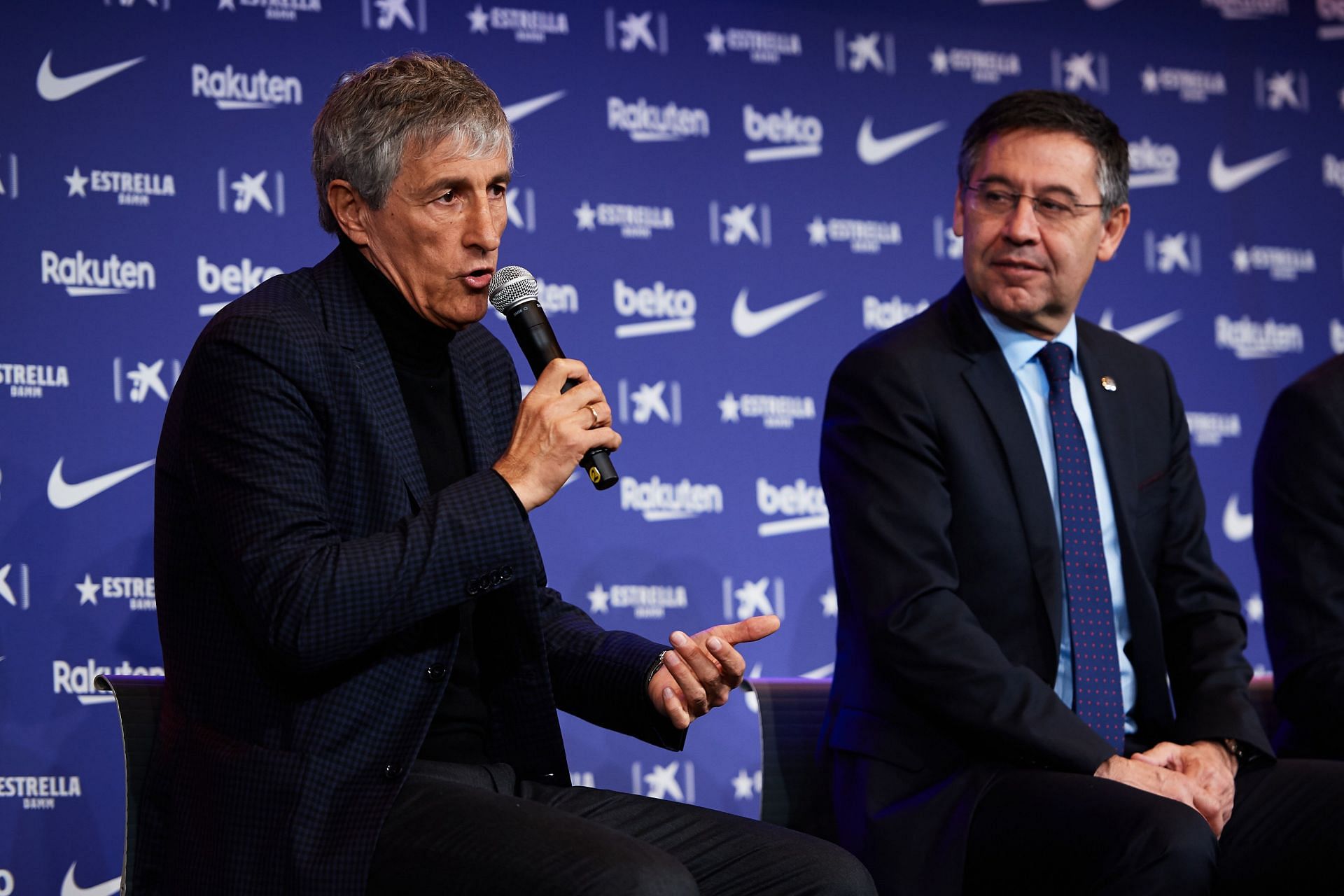
After the end of Laporta’s first tenure as president, subsequent Barcelona chiefs have looked to profit on Barcelona’s sextuple-winning exploits. Indeed, subsequent presidents such as Sandro Rosell and later Josep Maria Bartomeu have looked to build a Galactico Barcelona.
They completely veered away from the Laportan model. Their attempts to build ‘brand Barcelona’ and turn the club into a global financial behemoth spectacularly backfired, though.
It is now heartening to see Xavi and Joan Laporta back together. After a long time, there seems to be harmony in Barcelona's higher echelons.
Pep Guardiola and Xavi: Passing of the baton
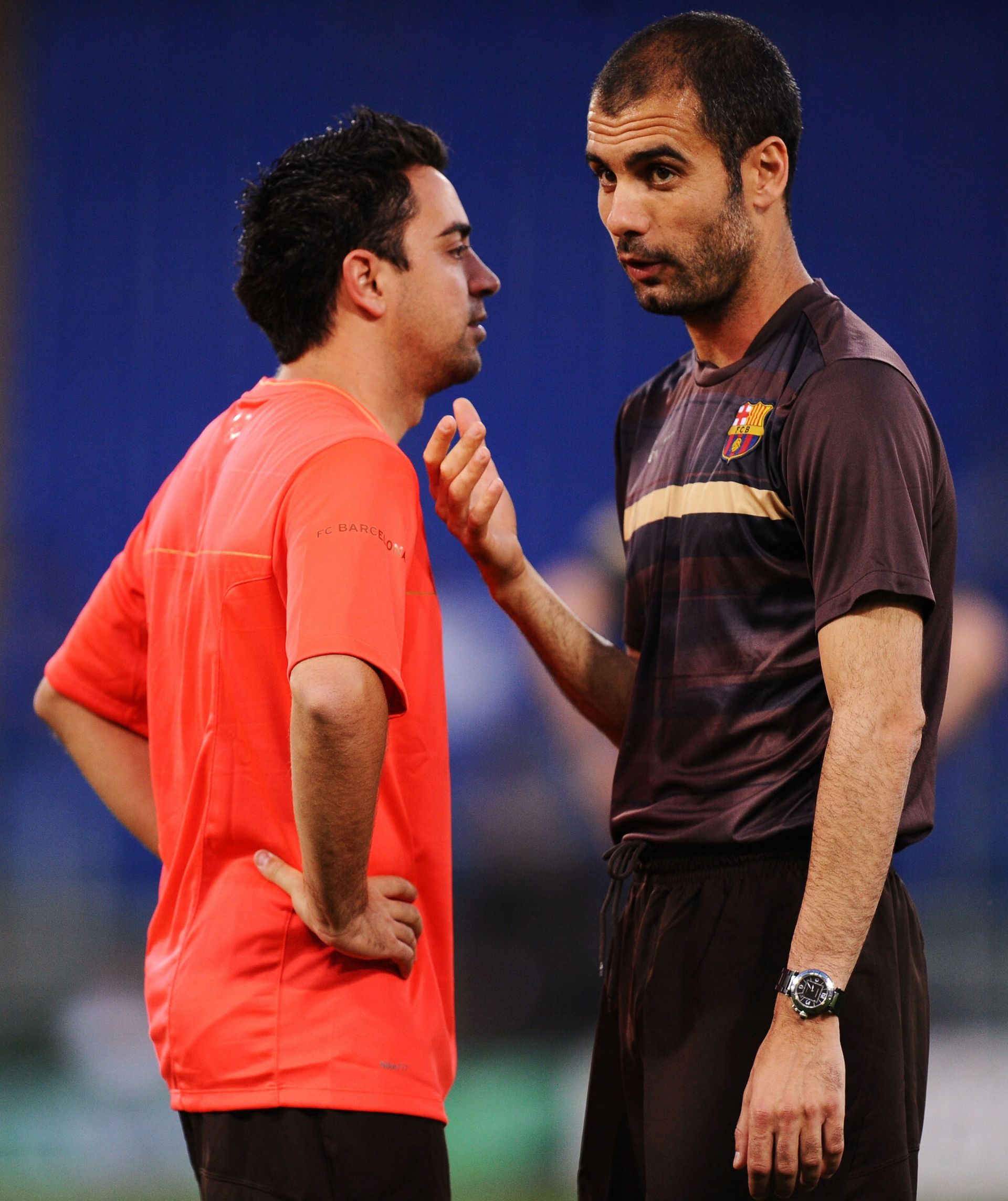
Perhaps Laporta’s biggest coup was appointing Pep Guardiola as first-team manager in 2008.
That was at a time when it was widely expected that the mercurial and successful Jose Mourinho would take charge. Now that we have the luxury of hindsight, we can see that the appointment of Xavi is an attempt in recreating that 2008 Barcelona order.
Xavi is a tactician par-excellence. But what makes him a wonderful choice is that Guardiola himself wanted to keep the player at the Nou Camp in 2008 when Xavi pondered a move to Bayern Munich.
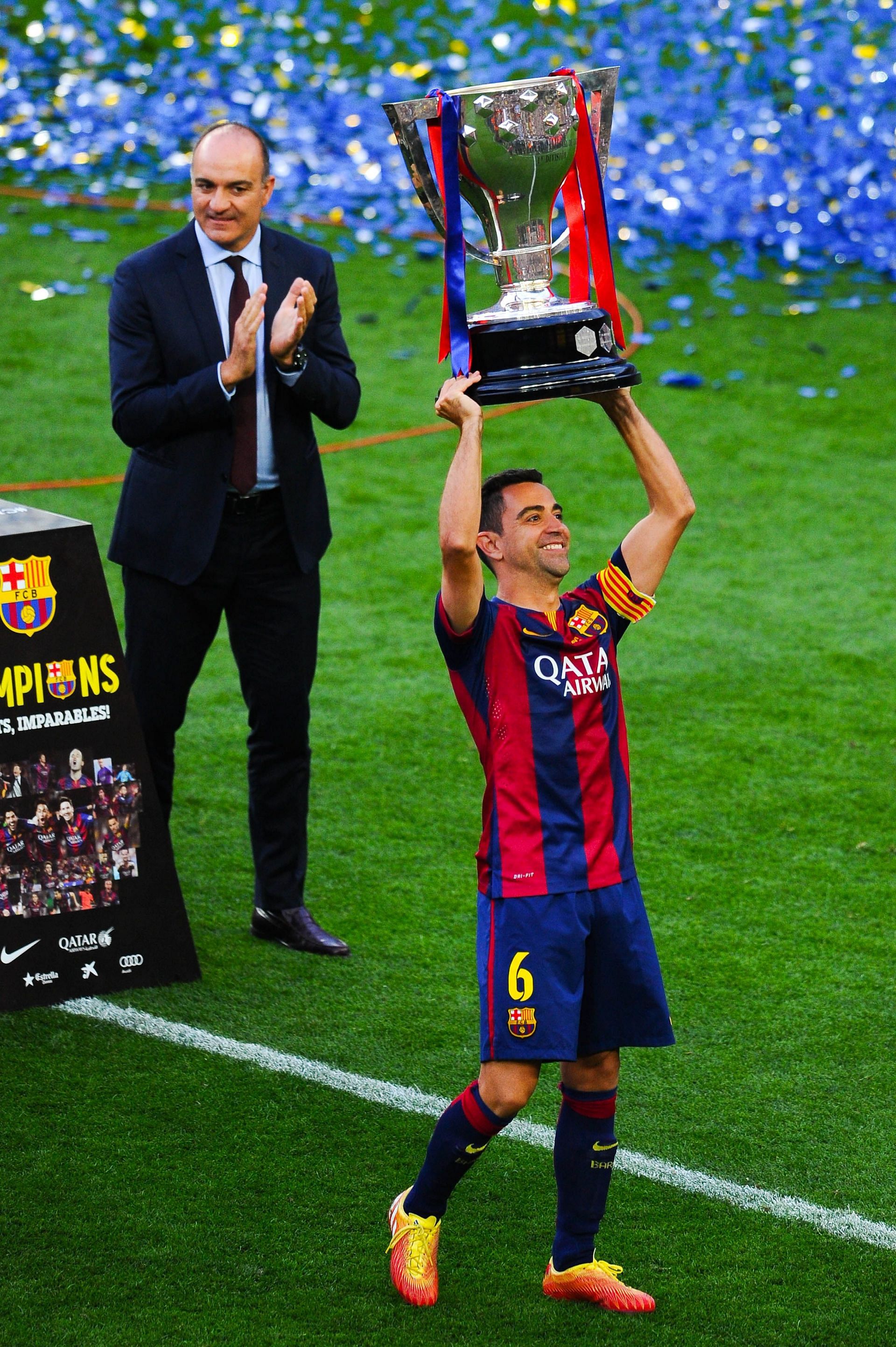
During a conversation with the player in 2008, the newly appointed Guardiola convinced Xavi that he would be an important player in his team. The new Barcelona manager said that he could not imagine the club without the then number six. The move paid off in more ways than one.
Xavi helped Guardiola and the subsequent managers at Barcelona win key titles for many more years. In the process, he also acquired tactical knowledge from the now Manchester City boss. Even as a player, the midfielder showed a high tactical adaptability, so much so that Xavi's teammates believed he would be a manager one day.
The challenges ahead for Xavi
Xavi’s first real challenge would be to end the team's proclivity for mediocrity. He has already made clear that at Barcelona, winning is all that matters and losing is never an option. In recent times, though, Barcelona have made losing a norm of sorts, with the nadir coming in the 8-2 defeat against Bayern Munich not so long ago.
Next, he must look for a way to reduce the injuries the players have been enduring recently. As many as eight Barcelona players are currently out injured: Ousmane Dembele, Ansu Fati, Martin Braithwaite, Sergio Aguero, Sergino Dest, Pedri González, Sergi Roberto and Nico Gonzalez.
It is both unfortunate and unusual for a club to have so many injured players.
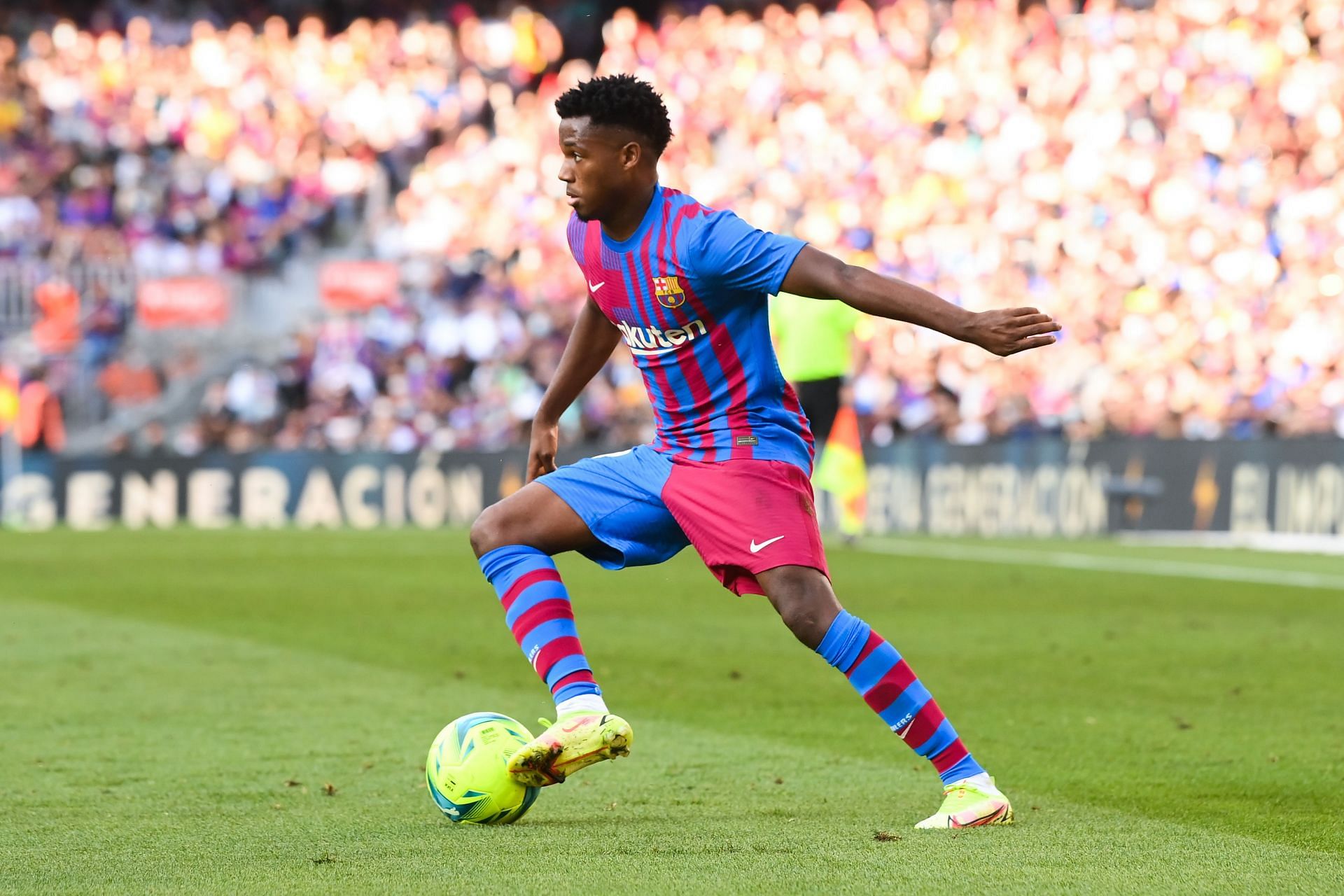
It seems that Xavi has already made one change, as the Barcelona players have been instructed to have food together at the Ciutat Esportiva. This is a good ploy to monitor the eating habits of the players and to ensure their adequate nutritional requirements.
Xavi has also been quite firm in dishing out new rules, two of them being worth mentioning. All players must now arrive an hour and a half early for training and devote more time to the gym.
The second one is that players must be back at their homes before midnight wherever they go, especially within 48 hours of a match. Other rules such as no use of social media on matchday are also significant, even though the players might struggle to keep up with them.
Perhaps Xavi’s biggest challenge would be to keep the Barcelona team fighting for a Champions League spot next season. That might be easier said than done with the way things are going for the team.
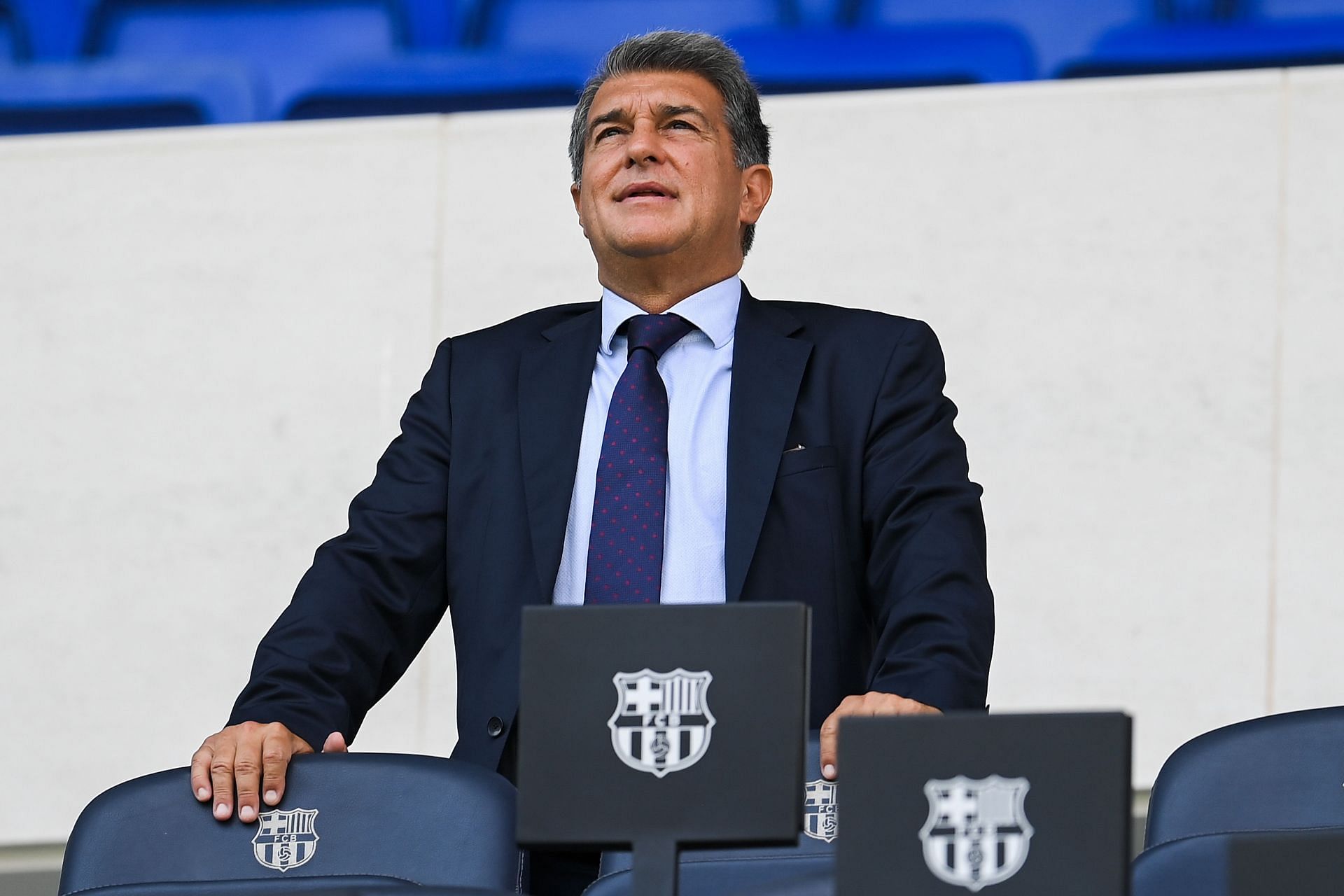
Barcelona look like a rejuvenated outfit. A few quick victories early into Xavi’s reign could snowball into season-changing momentum. This is what Los Cules dream of. The club has finally found a way to combine footballing aspirations with the institution’s core Catalan values.
